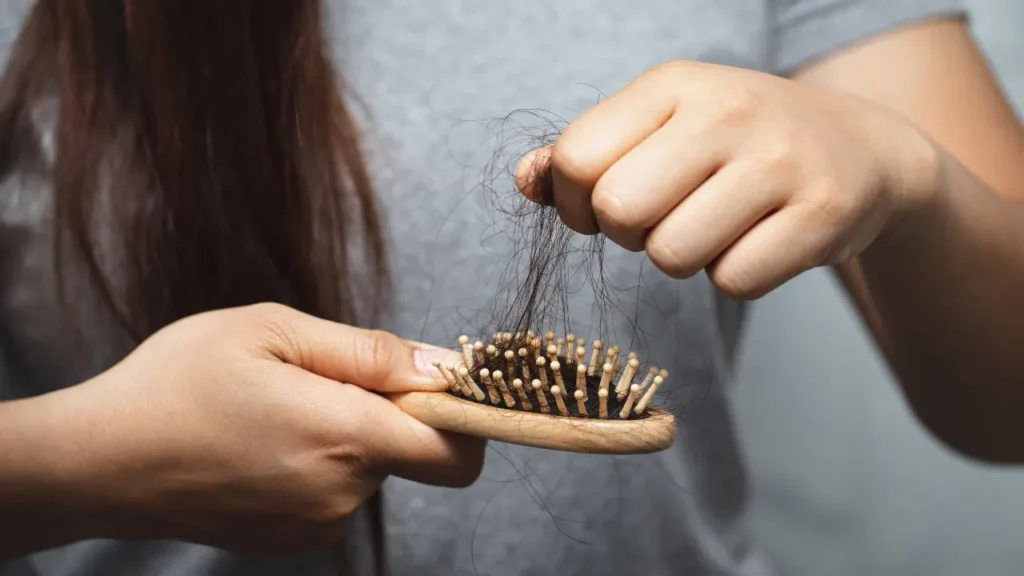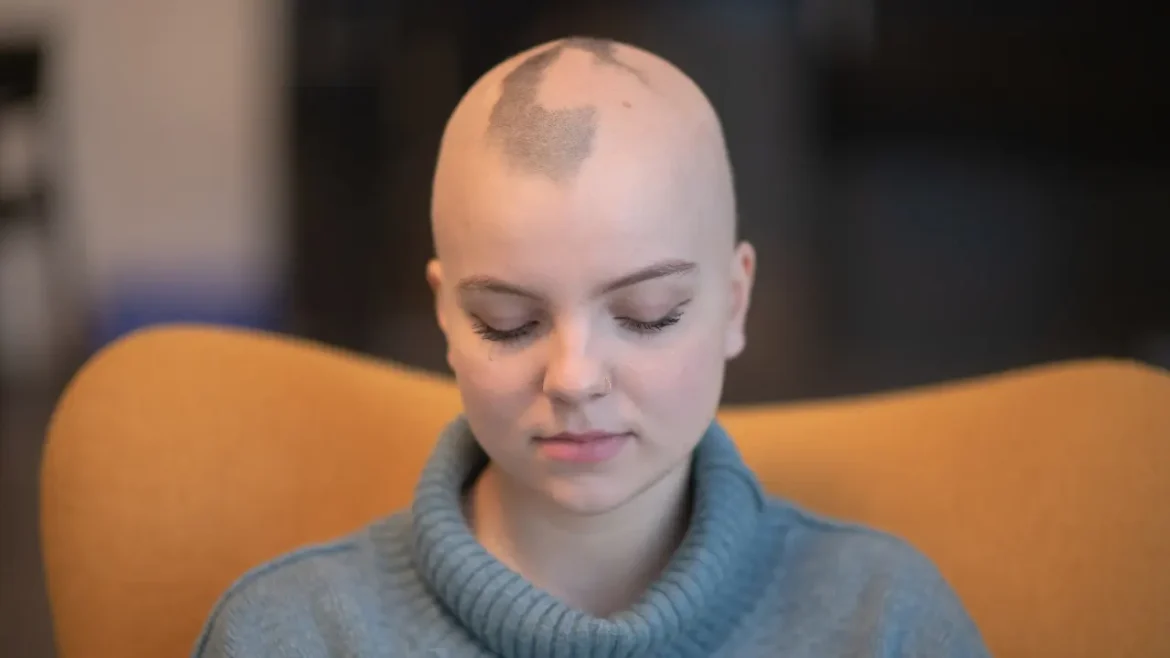Description
A type of scarring alopecia known as central centrifugal cicatricial alopecia (CCCA) causes permanent loss of hair by replacing hair follicles with scar tissue. Usually, the problem starts as a small area of hair loss near the top of the scalp, and progressively spreads outward. In some situations, burning, itching, or tenderness on one’s scalp may occur in addition to hair loss.
Women of African heritage are more likely than men to develop CCCA, and this condition is more prevalent among women as compared to men. However, people of any ethnic background can get the illness. Although the true rate of CCCA remains unknown, studies indicate that as many as five percent of women belonging to African lineage can be highly affected by the disorder.
You May Also Like:
HOO RAA CBD VS PARTNERED PROCESS CBD
LASERS: DESCRIPTION, CAUSES, AND TREATMENT PROTOCOL
Central Centrifugal Cicatricial Alopecia (CCCA): Description, Causes, And Treatment Protocol is an original (HealthXWire) article.
Possible Causes
It is unclear what exactly causes CCCA. Nevertheless, it is thought that a mix of hereditary and environmental variables may play a role in the condition’s emergence. These are a few of the likely causes of CCCA:
Genetics: CCCA tends to be passed down in families, suggesting that the disorder may have a hereditary component. Several genes likely to play a role in CCCA development have been found through research.
Trauma: CCCA can occur as a result of trauma affecting the scalp and hair follicles, which can be caused by heat styling or tight hairstyles. Permanent hair loss along with hair follicle scarring are possible outcomes of this.
Inflammation: The onset of CCCA can be influenced by persistent inflammation of the scalp and hair follicles. Infections, trauma, and autoimmune diseases are just a few of the causes of inflammation.
Hair Care Practices: Some hair care procedures, such as the application of hot combs or chemical relaxers, can accelerate the onset of CCCA. These practices can cause scarring along with permanent hair loss by harming the scalp and hair follicles.
Exacerbating and Mitigating Factors
The following are aggravating factors for central centrifugal cicatricial alopecia (CCCA):
- Weaves, braids, and extensions that are too tight can pull and stress the scalp, which can result in CCCA.
- Inflammation brought on by chemical hair treatments like relaxers, colors, and perms can harm hair follicles and aggravate CCCA.
- The use of hot styling products like curling irons and flat irons can harm hair follicles and cause inflammation, which can make CCCA worse.
The following are mitigating factors affecting central centrifugal cicatricial alopecia (CCCA):
- For stimulating hair development and maintaining general health, it is essential to keep a diet rich in a range of minerals, including vitamin D, iron, and protein.
- Furthermore, using gentle shampoos along with avoiding harsh chemicals can help minimize inflammation and encourage hair development by maintaining the scalp nourished and clean.
- In order to reduce further harm to the hair follicles, it is best to stay away from chemical-based hair care treatments while employing natural hairstyles which do not strain or pull on the scalp.
- Regular scalp massages alongside gentle exfoliation can help improve blood flow and promote healthier hair development.
- Low ponytails and buns are protective hairstyles that can reduce stress on the scalp, thus, stopping additional harm caused to hair follicles.
- The management of CCCA can also benefit from stress reduction techniques like meditation or exercise. Finding strategies to handle stress can be helpful because stress can make hair loss worse.

Standard Treatment Protocol
There is no known treatment for CCCA, however, it is possible to delay or stop the disease’s course and encourage hair growth. The traditional course of therapy for CCCA typically entails the integration of pharmaceuticals and dietary adjustments, such as the following:
Topical Corticosteroids: These drugs can be helpful in addressing early-stage CCCA because they lessen scalp irritation. They are normally given once or twice per day to the afflicted areas.
Oral Medications: Oral drugs like immunosuppressant medicines or systemic corticosteroids may be recommended in severe CCCA instances.
Lifestyle Changes: Changes in lifestyle, for instance, staying away from chemical relaxers and tight hairstyles, can assist in minimizing scalp irritation and prevent the onset of CCCA.
Intralesional Corticosteroid Injections: In this method, corticosteroids are injected directly into the scalp’s troubled regions. The more advanced the CCCA, the more successful this treatment is.


Treatment Options
Topical Immunomodulators: Pimecrolimus and tacrolimus are two examples of topical immunomodulators that may be used to lessen scalp inflammation and encourage hair growth.
Platelet-Rich Plasma (PRP) Therapy: This entails injecting your own platelet-rich plasma directly into your scalp’s troubled regions. PRP has growth factors that can help in healing along with hair growth.
Low-Level Laser Therapy (LLLT): In order to promote healthy hair growth, low-energy laser light can be used. LLLT can be carried out in a healthcare professional’s clinic or at home with a particular device.
Hair Transplantation: In this procedure, the hair follicles taken from a donor spot in the scalp are removed and then transplanted to the afflicted regions. For more severe CCCA instances, this is usually advised by a healthcare professional.
Nutritional Supplements: The following supplements may be beneficial as supplemental treatments or to support general hair health:
- Biotin
A B-vitamin necessary for strong hair development is called biotin. The keratin protein, which makes up the skin, hair, and nails, is produced as a result of biotin. According to some research, adding biotin to one’s diet can encourage hair growth in those who are experiencing hair loss. However, additional study is required to validate these results.
- Iron
For the growth of healthy hair, iron is a necessary mineral. Individuals having CCCA may be more susceptible to iron deficiency, which can result in hair loss. Iron supplementation can enhance hair development in CCCA patients who happen to be iron deficient.
- Vitamin D
Vitamin D deficiencies are frequently related to hair loss, and vitamin D is essential for good health overall. Supplementing with vitamin D can encourage hair development in those who are experiencing hair loss, according to several research. To validate these results, additional study is necessary.
- Omega-3 Fatty Acids
In addition to being crucial for overall health, omega-3 fatty acids can promote hair development. According to some research, taking an omega-3 supplement can boost hair thickness and density. Nevertheless, additional study is required to validate these results.
- Zinc
Zinc is a crucial mineral for promoting strong hair development. If you have been diagnosed with CCCA, you might be more susceptible to zinc insufficiency, which can lead to hair loss. If you have CCCA and have been zinc deficient, taking supplements can support hair development.
Herbal Remedies: Alternative therapy for CCCA can also include herbal and natural remedies. Natural treatments for CCCA management include the following:
- Essential Oils
Some essential oils, including rosemary, lavender, and peppermint, can help in promoting hair growth and minimize scalp discomfort. These oils may be rubbed into the scalp after being diluted using a carrier oil.
- Aloe Vera
Aloe vera contains anti-inflammatory properties and could aid in reducing scalp inflammation. Topical treatment can be applied to any affected regions.
- Saw Palmetto
The herb saw palmetto, might be able to assist in preventing the generation of a hormone linked to hair loss. You can also consume saw palmetto as a supplement.


Conclusion
Unfortunately, there is no known cure for CCCA, despite the fact that these treatment choices might be useful in easing pain and encouraging hair growth. Symptom management and disease progression slowdown are usually the main goals of treatment. However, it is crucial to remember that using natural treatments and herbal remedies ought to be performed only under a doctor’s supervision and with caution. Certain herbal remedies may interact negatively with other drugs or produce undesirable effects.


Additional resources for further reference
https://www.aad.org/public/diseases/hair-loss/types/ccca/causes
https://www.aocd.org/page/CCCA
https://www.ncbi.nlm.nih.gov/books/NBK559187/
Important Note: The information contained in this article is for general informational purposes only, and should not be construed as health or medical advice, nor is it intended to diagnose, prevent, treat, or cure any disease or health condition. Before embarking on any diet, fitness regimen, or program of nutritional supplementation, it is advisable to consult your healthcare professional in order to determine its safety and probable efficacy in terms of your individual state of health.
Regarding Nutritional Supplements Or Other Non-Prescription Health Products: If any nutritional supplements or other non-prescription health products are mentioned in the foregoing article, any claims or statements made about them have not been evaluated by the U.S. Food and Drug Administration, and such nutritional supplements or other health products are not intended to diagnose, treat, cure, or prevent any disease.
Table of Contents


